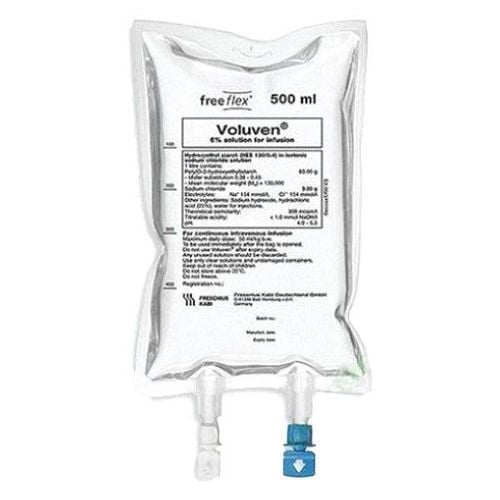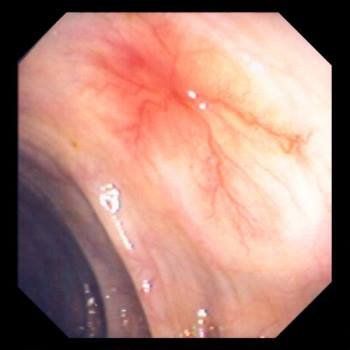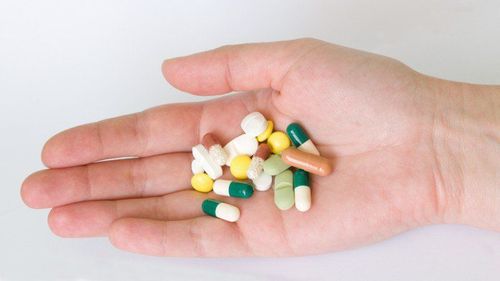This is an automatically translated article.
Dengue fever is a disease caused by the transmission of dengue virus. The disease usually occurs mainly in children, causing great health effects and dangerous complications if not treated and cared for properly. Let's learn about the care plan for dengue patients through the article below.
1. Dengue fever overview
1.1. Pathophysiology Dengue fever is an infectious disease caused by Dengue virus, the disease occurs all year round but mainly in the rainy season. The pathophysiology of dengue fever is as follows:
Plasma loss due to increased vascular permeability, which leads to hemoconcentration. Severe cases lead to hypovolemic shock and possibly death; Bleeding due to blood clotting disorder. 1.2. Clinical symptoms The disease is divided into 3 levels with different clinical symptoms as follows:
Dengue hemorrhagic fever: The patient has a sudden high fever, occurring continuously from day 2 to day 7 and associated with at least 2 of the following symptoms: Hemorrhagic symptoms such as subcutaneous petechiae, positive ligature test, epistaxis, bleeding gums; Loss of appetite, headache, nausea; Rash, skin congestion. The patient's subclinical symptoms such as normal or slightly decreased platelet count, normal or increased Hematocrit index, decreased white blood cell count.
Dengue hemorrhagic fever with warning signs usually has clinical symptoms of Dengue hemorrhagic fever, along with the following signs: lethargy, lethargy, struggling; Pain in the liver or abdominal pain in the liver; Liver larger than 2cm; Vomiting profusely; Mucosal bleeding; Blood tests showed that the Hematocrit index was elevated, the platelets decreased rapidly. Patients with the above warning symptoms should be closely monitored for blood pressure, pulse, urine output, Hct index, platelet count, timely administration of fluids and a plan for patient care. reasonable dengue fever.
Severe Dengue hemorrhagic fever: The patient shows one of the following symptoms: Severe plasma leakage leading to hypovolemic shock, fluid accumulation in the abdomen and pleural space; Multi-organ failure ; Heavy bleeding.

Cần lập kế hoạch chăm sóc bệnh nhân sốt xuất huyết khi có chảy máu cam
2. Dengue patient care plan
Need to plan to care for dengue patients as follows:
2.1. Diagnosis Through the process of questioning, examination and paraclinical changes, the doctor determines the patient's condition specifically as follows:
- Ask the patient:
The patient's medical history such as the number of days fever symptoms appear, fever nature (continuous high fever 39oC - 40oC, fever duration from 3 to 4 days), does the patient have convulsions, vomiting? Have you been treated with any drugs? Patient history: Has the patient had dengue fever in the past or has a child in the immediate family having dengue fever? - Medical examination: The patient needs to be examined specifically as follows:
General condition: Weight, height, mucosal skin...; Perception: Irritability, drowsy, struggling; Vital signs: Blood pressure, temperature, pulse, breathing rate; Signs of bleeding: Bleeding gums, nosebleeds, black stools, vomiting blood. - Subclinical changes: DHCT index ≥ 20% compared with normal, platelet count < 100,000/mm3.
2.2. Specific care plan Maintain the patient's temperature at 37oC - 37.5oC by following these steps:
Monitor body temperature every 6-8 hours (note signs of hypothermia may occur from Days 3 to 5 of illness because shock may occur, even if no obvious signs of bleeding appear; Monitor patient's consciousness including coma, alertness, lethargy, and struggle; Patient should wear clothing thin, lie down in a cool place; Wipe body with warm water, cover the armpit and groin area with a blanket when fever is high; Use antipyretic according to the principle of 10-15mg/kg/time (do not use Aspirin, Ibuprofen to reduce fever because it can cause fever). cause acidosis, gastrointestinal bleeding); Patients should drink plenty of water: cold boiled water, Oresol, fruit juice... Do not eat and drink brown foods and drinks because it is difficult to distinguish from the condition. vomiting blood.

Theo dõi thân nhiệt là một trong các mục của kế hoạch chăm sóc bệnh nhân sốt
Maintain a stable blood volume by following these steps:
Monitor the patient's blood pressure, temperature and pulse every 4-6 hours, depending on the patient's condition; Monitor mucosal color, skin color and consciousness; Monitor the patient's eating and drinking status: Are you vomiting, can't drink a lot of water; Instruct the patient to recognize the signs of transition in time to take appropriate measures; Proper nutrition is an important measure in the care plan of dengue patients. Nutritional supplements depend on each stage of the disease as follows:
Pediatric patients in stages 1 and 2: Should give children liquid foods, giving priority to foods that children like to be able to eat with maximum amount; supplementing juice for children; meals should be divided into small portions; Pediatric patients with gastrointestinal bleeding: Do not supplement with oral nutrition, instead, supplement intravenously until the bleeding stops; Pediatric patients with hepatobiliary complications: Need to monitor blood sugar and reduce protein in case of hepatic coma; Pediatric patients with cerebral complications: Feeding through the Sonde and by intravenous route; The patient's recovery period: Increase the number of meals and give the child a make-up meal... Plan to take care of the patient with dengue through health education:
Give the child fever-reducing medicine, cool his body when he has a fever ; Encourage your child to drink plenty of water and eat easy-to-digest liquid foods, and avoid foods and liquids that are brown, red, and black; Recognize signs of disease transition such as abdominal pain, lethargy, irritability, cold hands and feet, vomiting a lot, black stools, vomiting blood, little urine...; Protect children from mosquito bites such as sleeping with mosquito nets, repelling mosquitoes, not letting children play in dark places, applying mosquito repellent, house and garden should be clean and tidy.
Currently, because there is no preventive vaccine and no specific treatment, we rely on transmission routes to proactively prevent dengue. In particular, those who have not yet contracted the disease but live in epidemic areas must actively prevent dengue fever from spreading into a large outbreak. When there are signs of suspicion of dengue fever, they must actively go to medical facilities or Vinmec International General Hospital for examination and treatment. At Vinmec, there is a team of well-trained and experienced infectious doctors, a complete and modern system of medical equipment, and professional service quality for high efficiency in diagnosis and treatment. The hospital receives examination, diagnosis, treatment, cooperation against epidemics and takes care of patients with diseases caused by bacteria, parasites, infections with unknown causes.
In particular, the Department of Infectious Diseases - Vinmec International General Hospital also includes the function of organizing vaccinations under the direction of the Ministry of Health, both for children and adults, in which special serving adults, typically vaccinating against HPV, hepatitis A, hepatitis B, shingles, Herpes, malaria, pneumonia,...
Please dial HOTLINE for more information or register for an appointment HERE. Download MyVinmec app to make appointments faster and to manage your bookings easily.













